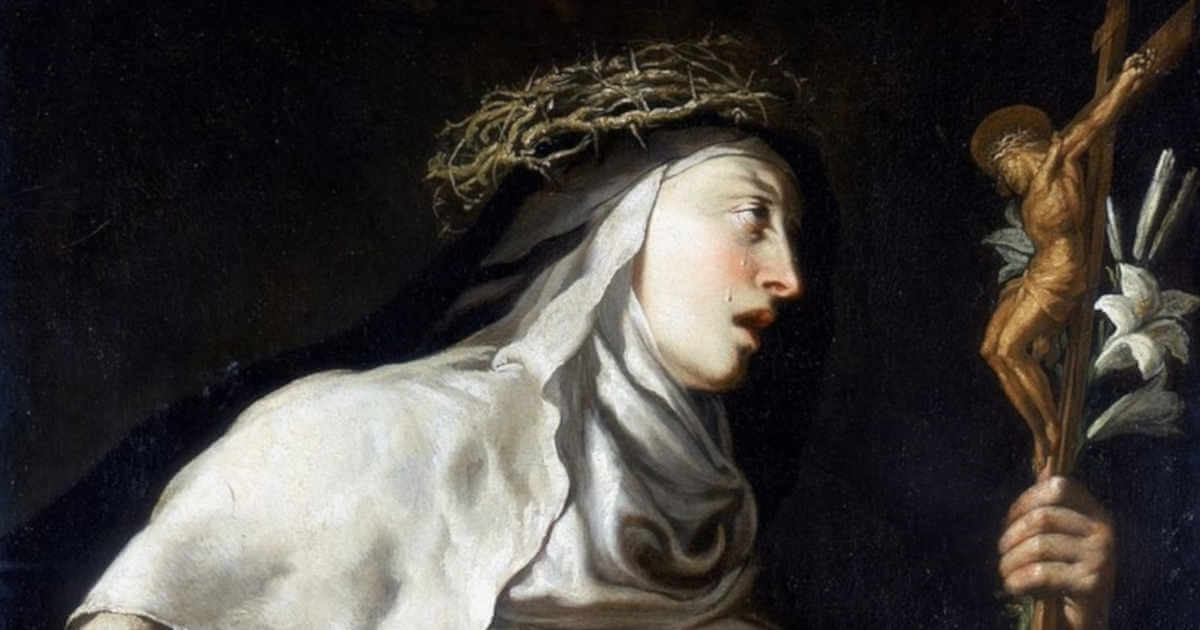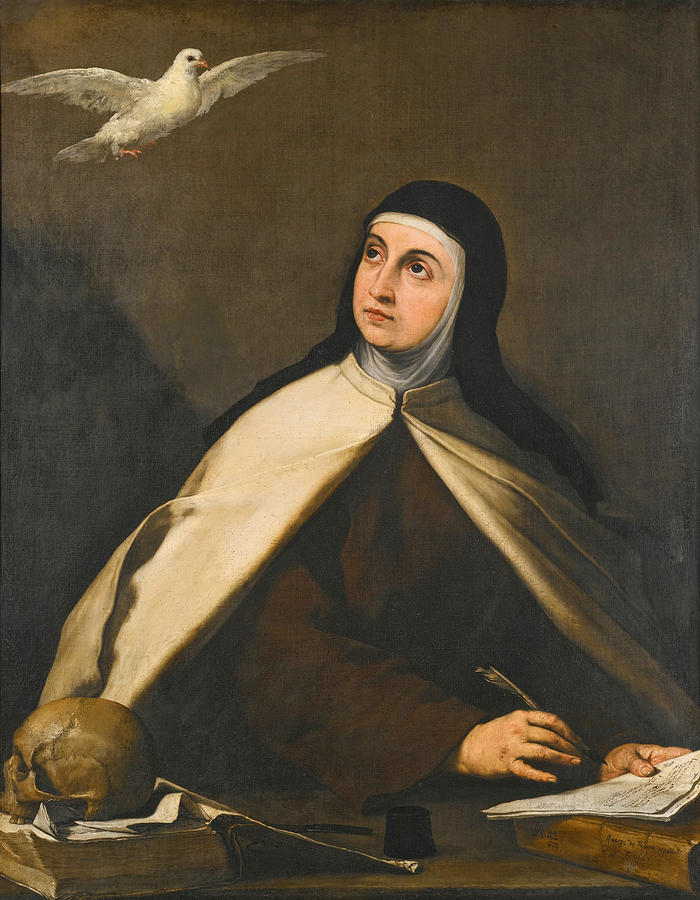
St. Teresa of Ávila
Spanish Reformer & First Female Doctor of the Catholic Church
When terrible illness strikes her, keeping her in bed nearly a year, her religious convictions deepen and she turns to prayer and a personal relationship with God to help her manage the difficult days. Then, when Jesus himself appears to her in visions, Teresa finds herself in a position of influence in the church and the community at large.
With both her country and her Church facing divisive political battles, can Teresa use her direct line to God to make a difference in these troubling times? You’ll have to listen to find out!
“God unites it [the soul] with Himself, in a way which none can understand save it and He, and even the soul itself does not understand this in such a way as to be able to speak of it afterwards, though it is not deprived of its interior senses; for it is not like one who suffers a swoon or a paroxysm so that it can understand nothing either within itself or without. The position, in this case, as I understand it, is that the soul has never before been so fully awake to the things of God or had such light or such knowledge of His Majesty. This may seem impossible; because, if the faculties are so completely absorbed that we might describe them as dead, and the senses are so as well, how can the soul be said to understand this secret? I cannot say, nor perhaps can any creature, but only the Creator Himself.”
“For when He means to enrapture this soul, it loses its power of breathing, with the result that, although its other senses sometimes remain active a little longer, it cannot possibly speak. At other times it loses all its powers at once, and the hands and the body grow so cold that the body seems no longer to have a soul — sometimes it even seems doubtful if there is any breath in the body. This lasts only for a short time (I mean, only for a short period at any one time) because, when this profound suspension lifts a little, the body seems to come partly to itself again, and draws breath, though only to die once more, and, in doing so, to give fuller life to the soul. Complete ecstasy, therefore, does not last long.”





















